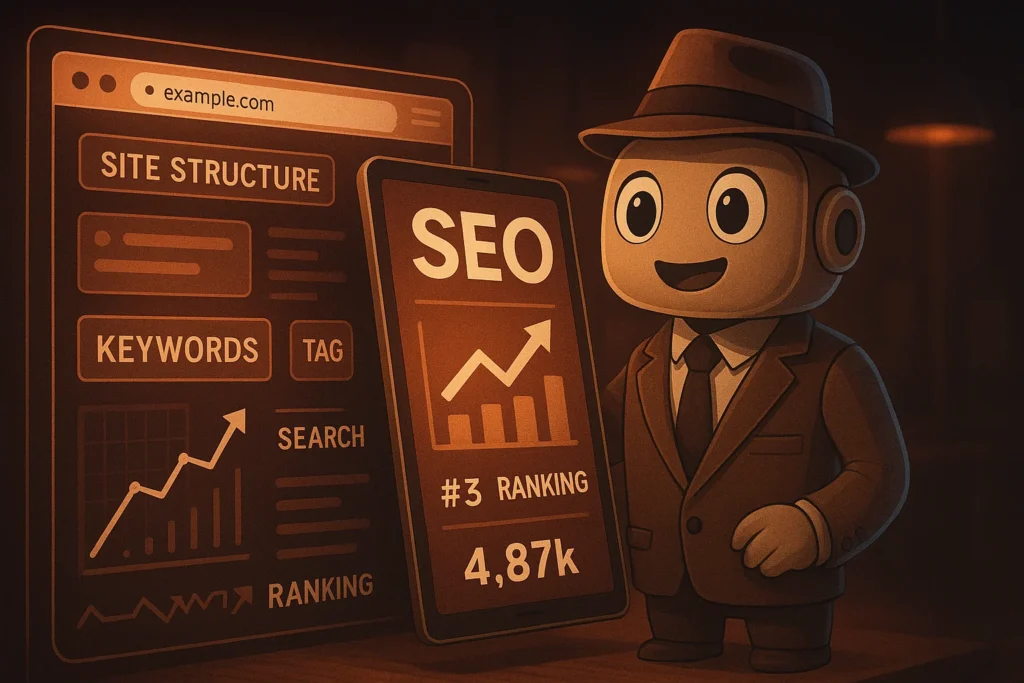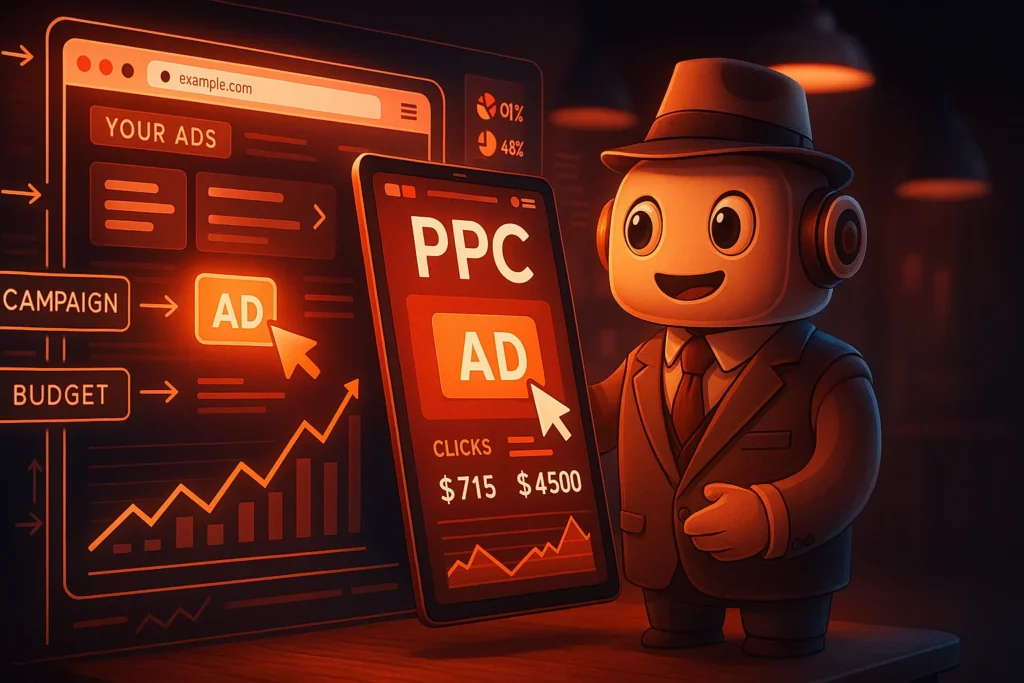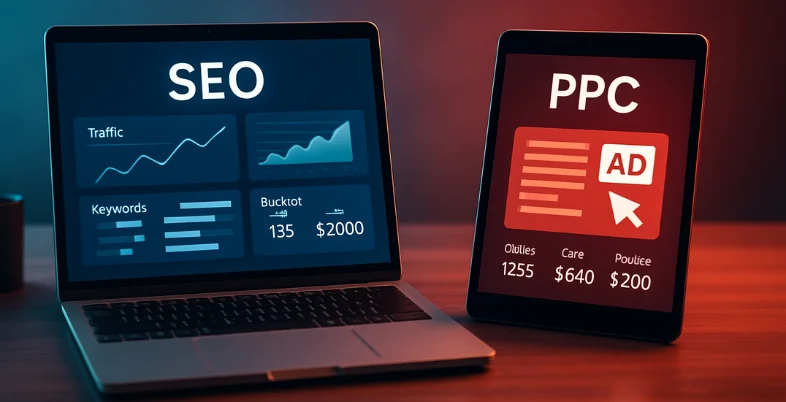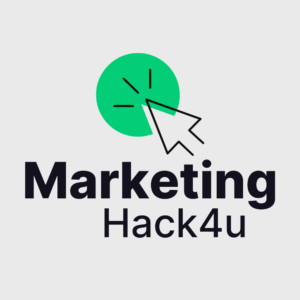Right after graduation, I was hired by a reputable digital marketing agency as a Pay-Per-Click (PPC) specialist. I worked there for nearly half a decade, and during that period, I ran countless PPC campaigns.
However, to try out new things, I resigned and opened my own small digital marketing agency. As a small agency, local businesses were my regular clients. Most of them were small businesses that couldn’t afford PPC campaigns, hence preferred Search Engine Optimization (SEO) to market their business. I often guided them with SEO tips for higher rankings, ensuring they could compete effectively even with limited budgets. For instance, resources like SEO for Travel Agencies provide useful strategies that can help businesses improve their search visibility.
That said, as someone with expertise in SEO and PPC, I assure you that both marketing strategies can work. However, if you’re looking for the best digital marketing strategy for your business, then you’ve come to the right place.
Below, I will start by explaining SEO and PPC, and from there on, I will discuss some of their major aspects. So, if you’re confused about which digital marketing strategy to choose, Insights from experts like SEO specialist also highlight the importance of tailoring your strategy to your business model, whether you’re leaning toward SEO, PPC, or both.
What is Search Engine Optimization (SEO)?

Search engines like Google, Bing, and more are incredibly important as they drive traffic to business websites and web pages. People search for businesses or their products on search engines and land directly at their websites or web pages.
However, a page may not appear in the Search Engine Results Page (SERP) if it is not SEO optimized. There are different approaches to SEO optimize a website, such as:
- Off-Page SEO: Essentially, you don’t perform any direct actions on your website in off-page SEO. Instead, you create backlinks to develop your website’s authority in the eyes of search engines. For this purpose, you can write and publish high-quality content on websites with high traffic and domain authority.
- On-Page SEO: In on-page SEO, your website’s content is optimized by targeting high-volume keywords, creating effective ad copies, adding clear Call-To-Actions (CTAs), internally linking the web pages, and more, to develop its authority.
- Technical SEO: This includes the backend optimization of a website. Website speed, structure, schema, indexing, and more factors are optimized in technical SEO to improve the website’s ranking in SERP.
I believe the best approach to optimize your website with SEO is to implement all three approaches simultaneously. While it may seem an uphill task to manage three different SEO techniques, let me tell you a little trick.
You should always get help from SEO tools like SEMrush, Ahrefs, and Screaming Frog to SEO optimize your website. Since I’m someone who works from home for the most part, I’ve realized that a reliable internet is key to running digital marketing agency. From keyword research to competitor website analysis, and finding technical errors, these SEO tools only require an internet connection to work.
I’ve found the high-speed Spectrum Internet plans to be extremely reliable and affordable. I recommend checking them out to find a plan that fulfills your internet needs.
Pros and Cons of SEO
Here are some major benefits and downsides of SEO.
| Pros | Cons |
| SEO is a cost-effective way to improve your website’s ranking on SERP. | It can take months to rank your website on a relevant keyword with SEO. |
| Once an SEO optimized website is ranked on SERP, it can likely sustain top results for a long period. | Search engine algorithms may change and damage a website’s organic position in the SERP. |
| As there is no “sponsored” tag in SEO, which may increase the website’s credibility among the audience. | SEO requires continuous and long-term efforts in content creation, backlinks, site optimization, and more to generate fruitful results. |
| SEO helps improve your website’s page speed, outlay, structure, and enhance user experience. | A website may need high-quality and unique content to rank organically on search engines. |
What is Pay-Per-Click (PPC)?

PPC advertising is a paid method to bring traffic to your website. Many businesses use PPC tools to manage ad slots for high-volume keywords they want to rank on. Every time a person searches those keywords, these websites are shown at the top with a sponsored tag in SERP.
The advertisers pay a fee every time the website is clicked by the users. Also, the advertising fee for every keyword may depend on its length, relevance, search volume, location, and other factors.
Some of the following aspects play a major role in PPC campaigns:
- Keyword Research: This involves identifying and targeting relevant short and long-tail keywords that potential customers search for.
- Keyword Bidding: Here, you set the maximum amount you’re willing to pay against each click on the sponsored ad.
- Target Audience Demographics: In PPC advertising, you can choose to show your sponsored ad to a specific target audience based on their location, age, gender, etc.
- Compelling Ad Copy: PPC is usually backed by a persuasive meta description to compel the target audience to click on your sponsored ad.
| Fun Fact: According to resources, the top five results about any query on a search engine get 75% of the clicks. |
Pros and Cons of PPC
Here are some of the major merits and demerits of PPC campaigns.
| Pros | Cons |
| PPC campaigns can instantly bring traffic to your website. | PPC campaigns are expensive, and not every business can afford them. |
| You can directly target your potential customers with PPC campaigns. | PPC results are usually short-lived and remain visible as long as the paid campaign runs. |
| As sponsored ads are placed at the top on SERP, PPC offers the best visibility spot to a website. | Some users may refrain from clicking on websites with a “sponsored” tag. |
| From choosing target audience to bidding on keywords, advertisers have complete control in PPC campaigns. | A website’s click cost may add up pretty quickly in PPC. |
A Quick Comparison Between SEO and PPC
Before I move on to the next section, the table below explains the major differences between SEO and PPC.
| Metrics | SEO | PPC |
| Method | Organic | Inorganic |
| Cost | Low | High |
| Traffic | Organic | Paid |
| Performance | Takes several months to produce results. | Produces instant results. |
| Result Longevity | Results are usually long-lasting. | Results end after the campaign. |
| Control | Less | More |
| SERP Visibility | Less | More |
| Click-Through Rate | Varies on the website’s ranking. | High due to top position in SERP. |
| Tidbit: Click-Through Rate (CTR) indicates the percentage of people clicking on a specific website or web page link, ad, or call-to-action (CTA) button versus the times people see them. |
When Should You Use SEO and PPC Campaign?
Before I wind up, this section explains the key indicators to look out for before choosing any digital marketing technique. For businesses seeking expert guidance, Oxygen stands as a trusted digital marketing agency offering strategies tailored to unique goals.
When to Use SEO
- If you don’t have a huge budget for online advertising, then SEO may be the best digital marketing strategy for your business.
- Businesses that can wait patiently to get organic traffic and stable rankings on SERP should go for SEO.
- A business may easily rank its website with quality content, backlinks, and website optimization in a less saturated market. For activity and tour providers, an often-overlooked opportunity is listing experiences on Google Things to Do, a free platform that allows operators to appear directly in Google Search and Maps results, driving bookings without paid ads.
When to Use PPC
- Businesses with sufficient marketing budgets should go for PPC campaigns.
- PPC campaigns may be the best marketing tool to target a niche customer market.
- To promote time-sensitive events, product discounts, and more, PPC campaigns can effectively bring traffic to your website in a short time.
Frequently Asked Questions (FAQs)
What is search engine marketing?
Search Engine Marketing (SEM) is an umbrella term for several online marketing practices, including Search Engine Optimization (SEO) and Pay-Per-Click (PPC).
Can I get help from both SEO and PPC?
Yes, SEO and PPC can be used simultaneously, as you may run PPC ads on specific web pages and SEO optimize the rest of your website.
Why is SEO Google-focused?
Google is the most widely used search engine globally, hence, most websites are SEO optimized for Google’s algorithms.

